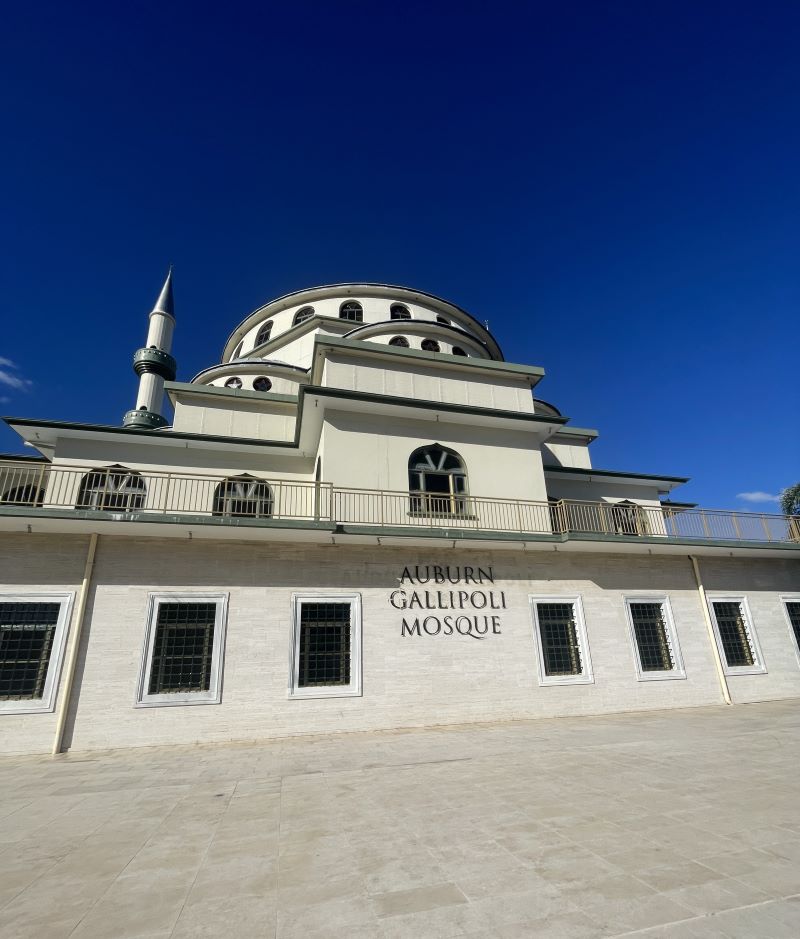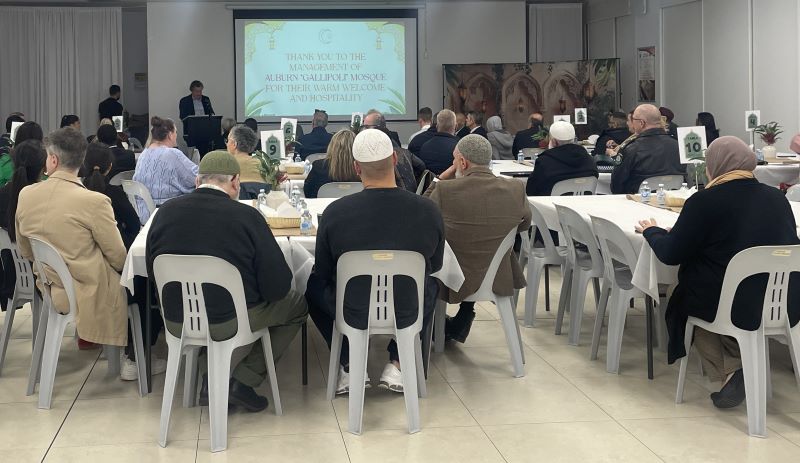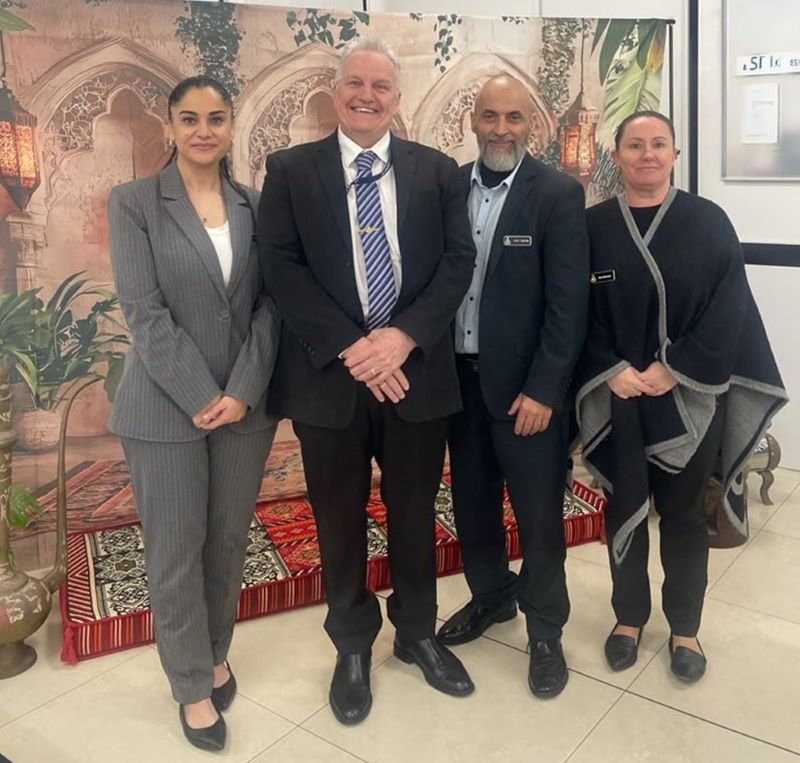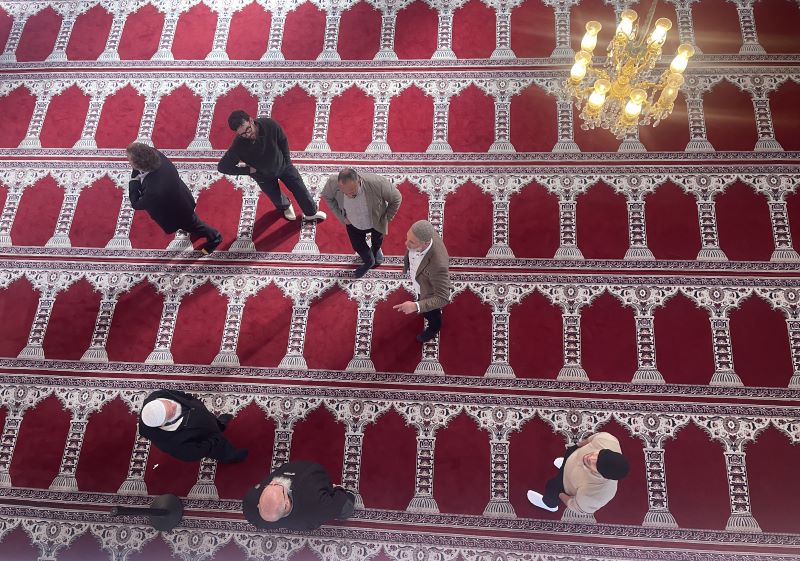Automatic language translation
Our website uses an automatic service to translate our content into different languages. These translations should be used as a guide only. See our Accessibility page for further information.
1 JULY 2025
In a celebration of unity and cultural respect, the Auburn Gallipoli Mosque hosted a special Eid al-Adha event that brought together representatives from Corrective Services NSW (CSNSW), the Muslim Advisory Committee (MAC), the Muslim Consultation Committee (MCC) and community representatives.
The mosque, named in honour of the shared legacy of the Gallipoli Campaign, stands as a symbol of connection between Australians and the Turkish Muslim community.

This year’s Eid al-Adha celebration brought that legacy to life, with guests coming together to share food, stories, and a spirit of mutual respect.
CSNSW Community Corrections Team Leader Suzan Caglar opened the event with a moving message about “breaking bread and breaking barriers,” highlighting the day’s purpose: to foster understanding, build partnerships, and celebrate diversity.

Deputy Commissioner Luke Grant spoke about the importance of cultural competency and spiritual awareness within CSNSW, thanking MAC and MCC for their ongoing guidance in shaping inclusive, community-led rehabilitation programs. His remarks underscored the value of listening, learning, and leading with empathy.
Following this, CSNSW Commissioner Gary McCahon presented Auburn Gallipoli Mosque with a plaque of thanks for its support and the work it does with Community Corrections, including holding services for female victim-survivors of domestic violence. They have also mentored young male offenders and supported them in faith programs.
In turn, Deputy Commissioner Grant’s support of working closely with the Muslim community was recognised with a gift presented by the MAC.
MAC Chair Ziggy Abedine offered a historical lens, sharing the story of Indonesian Muslims who engaged with Aboriginal communities in Arnhem Land as early as the 1600s. This reminder of Australia’s multicultural history resonated with attendees and reinforced the importance of preserving and honouring these connections.
Sheikh Mohammad Trad, representing the MCC, delivered a powerful message drawn from Islamic teachings: “When you give, give the best you have.” His words encouraged all present to strive for excellence and integrity in their actions, both personally and professionally.

The celebration continued with a traditional Eid al-Adha lunch, generously provided by MAC and MCC. Guests enjoyed a variety of dishes including chicken mansaf, meat kibbeh, foul, falafel, vegetarian mansaf, hummus and tahini, served in the spirit of generosity and togetherness.

Following the meal, attendees were invited on a guided tour of the mosque. The experience offered a deeper understanding of Islamic rituals, architecture, and the mosque’s role as a vibrant community hub. The warm welcome extended to CSNSW representatives was a testament to the growing relationship between the organisation and the Muslim community.
This event was more than a celebration—it was a reminder of what’s possible when communities come together with a shared purpose.
Last updated:
We acknowledge Aboriginal people as the First Nations Peoples of NSW and pay our respects to Elders past, present, and future.
Informed by lessons of the past, Department of Communities and Justice is improving how we work with Aboriginal people and communities. We listen and learn from the knowledge, strength and resilience of Stolen Generations Survivors, Aboriginal Elders and Aboriginal communities.
You can access our apology to the Stolen Generations.